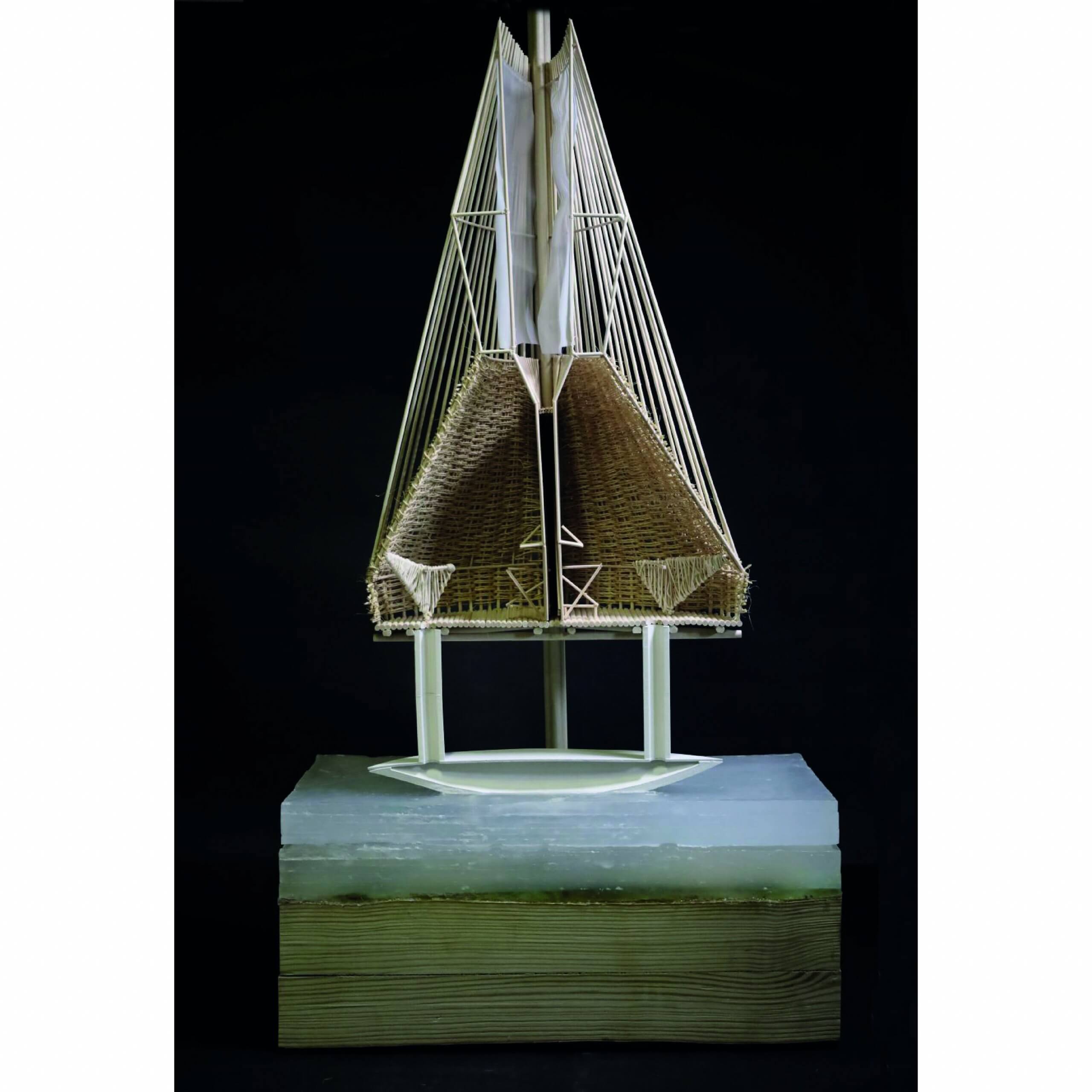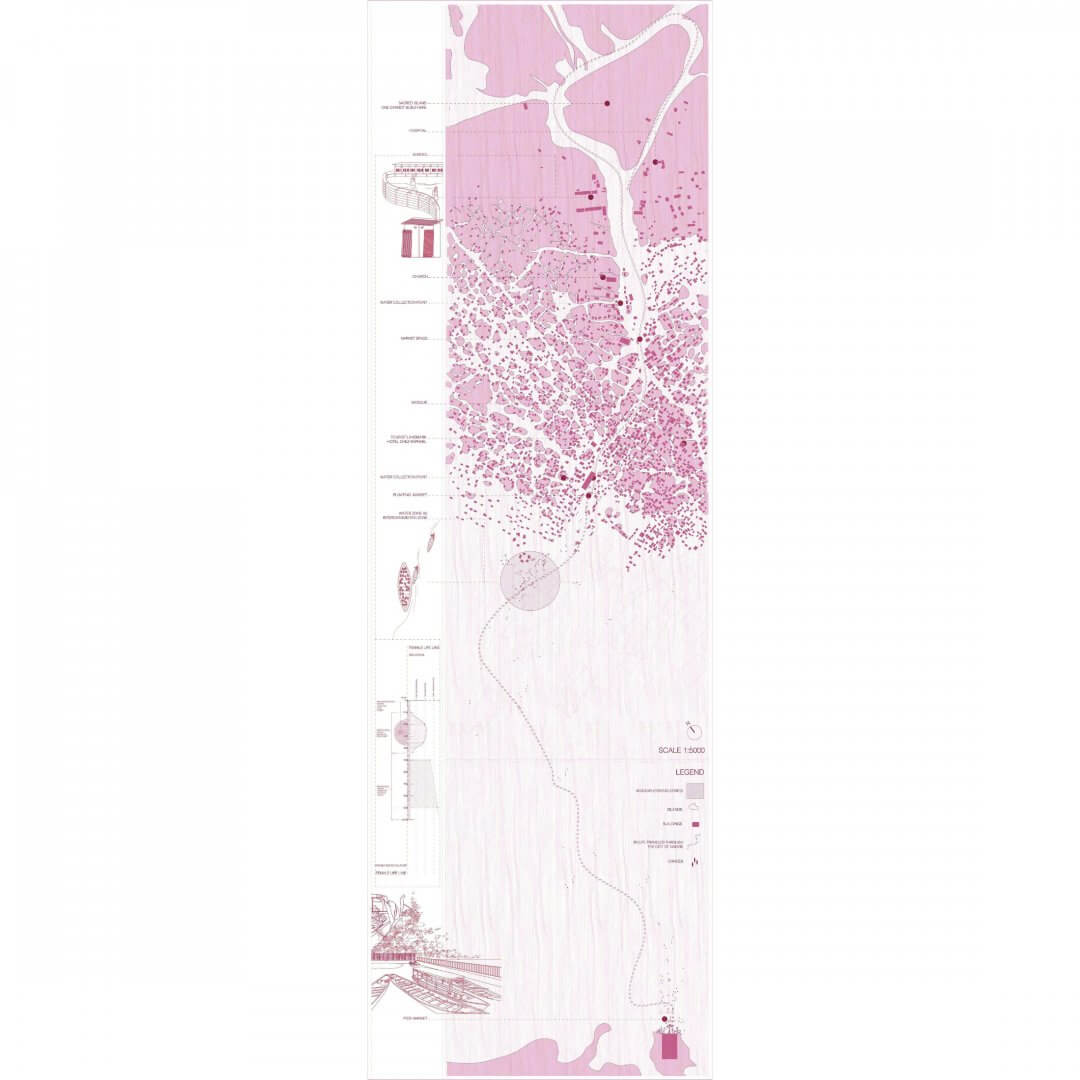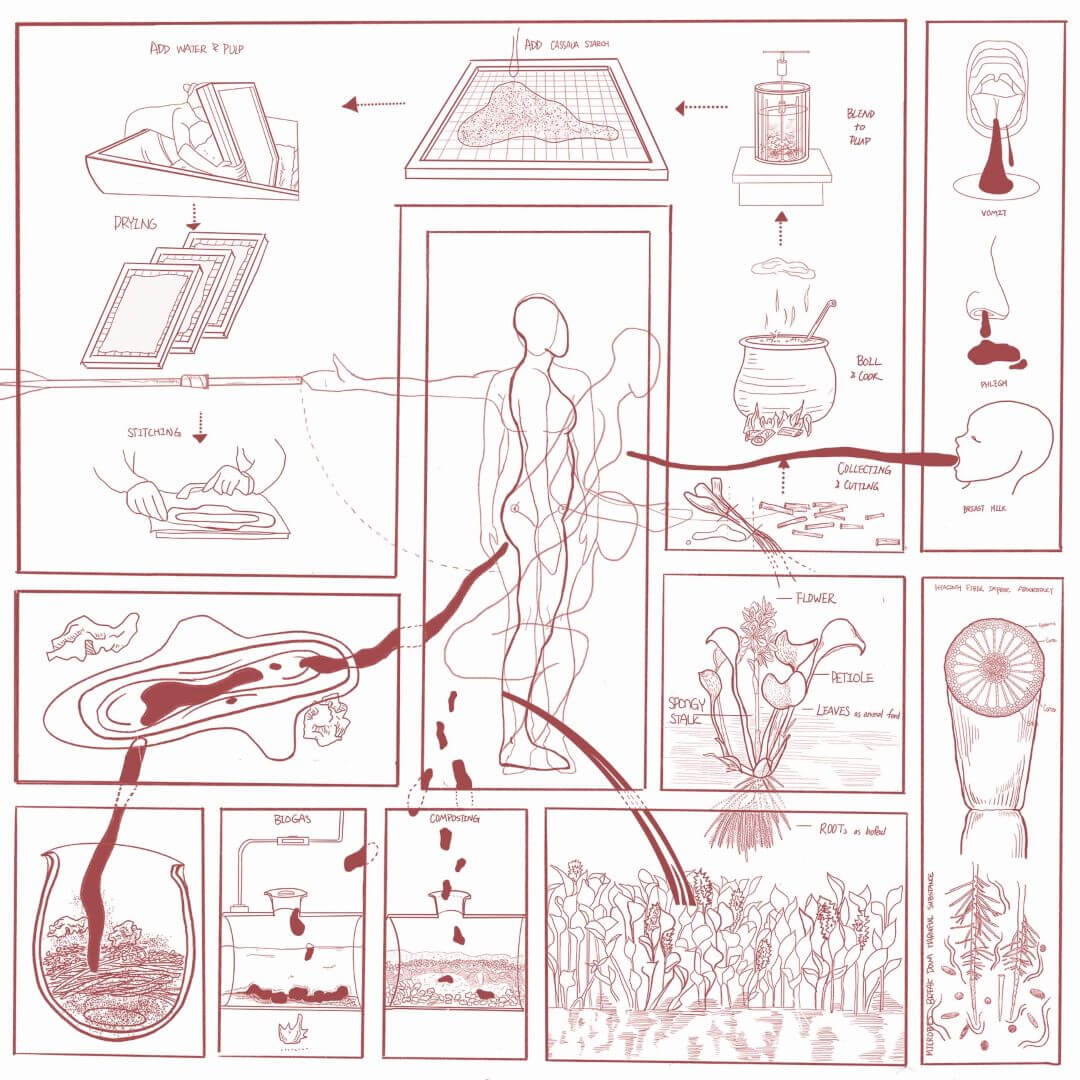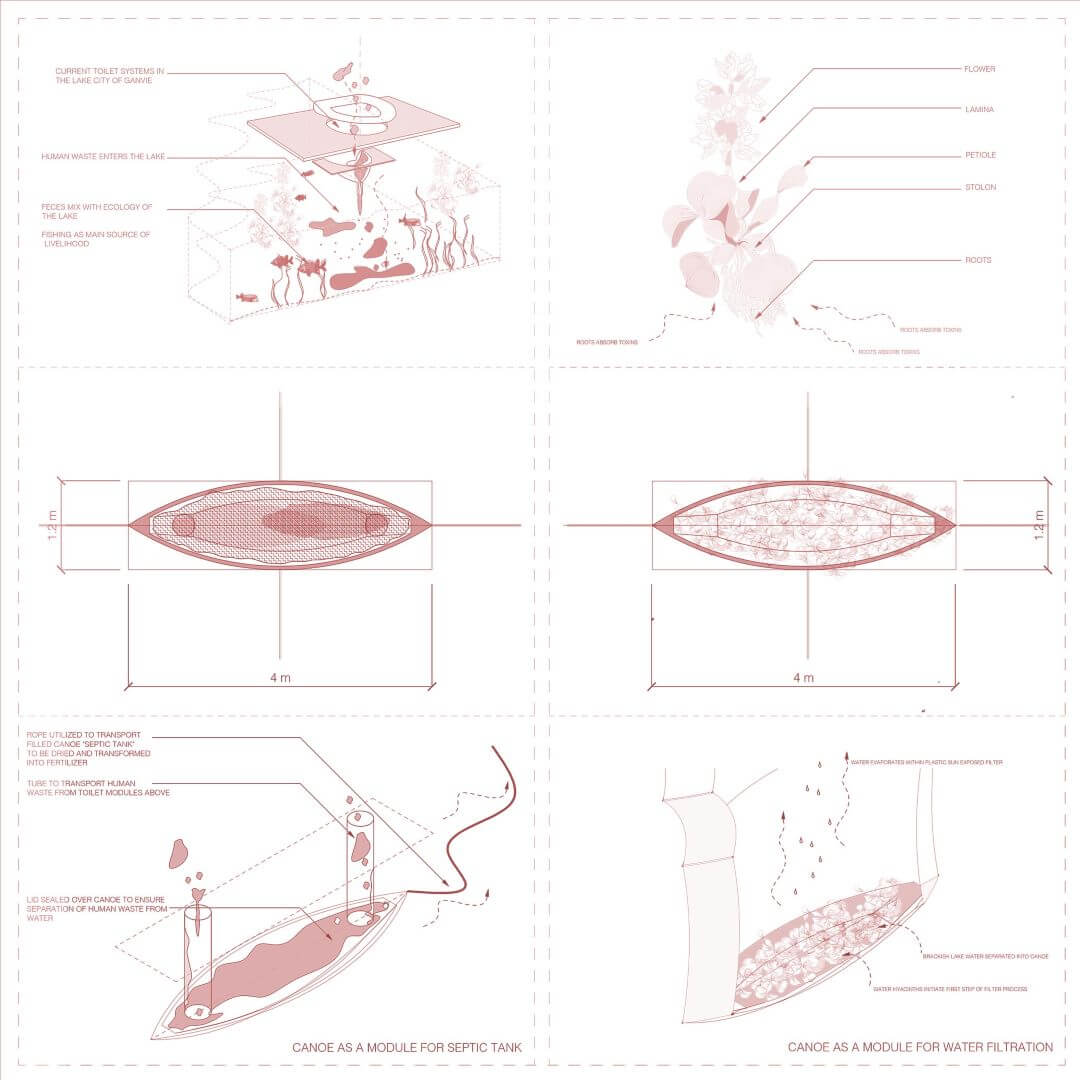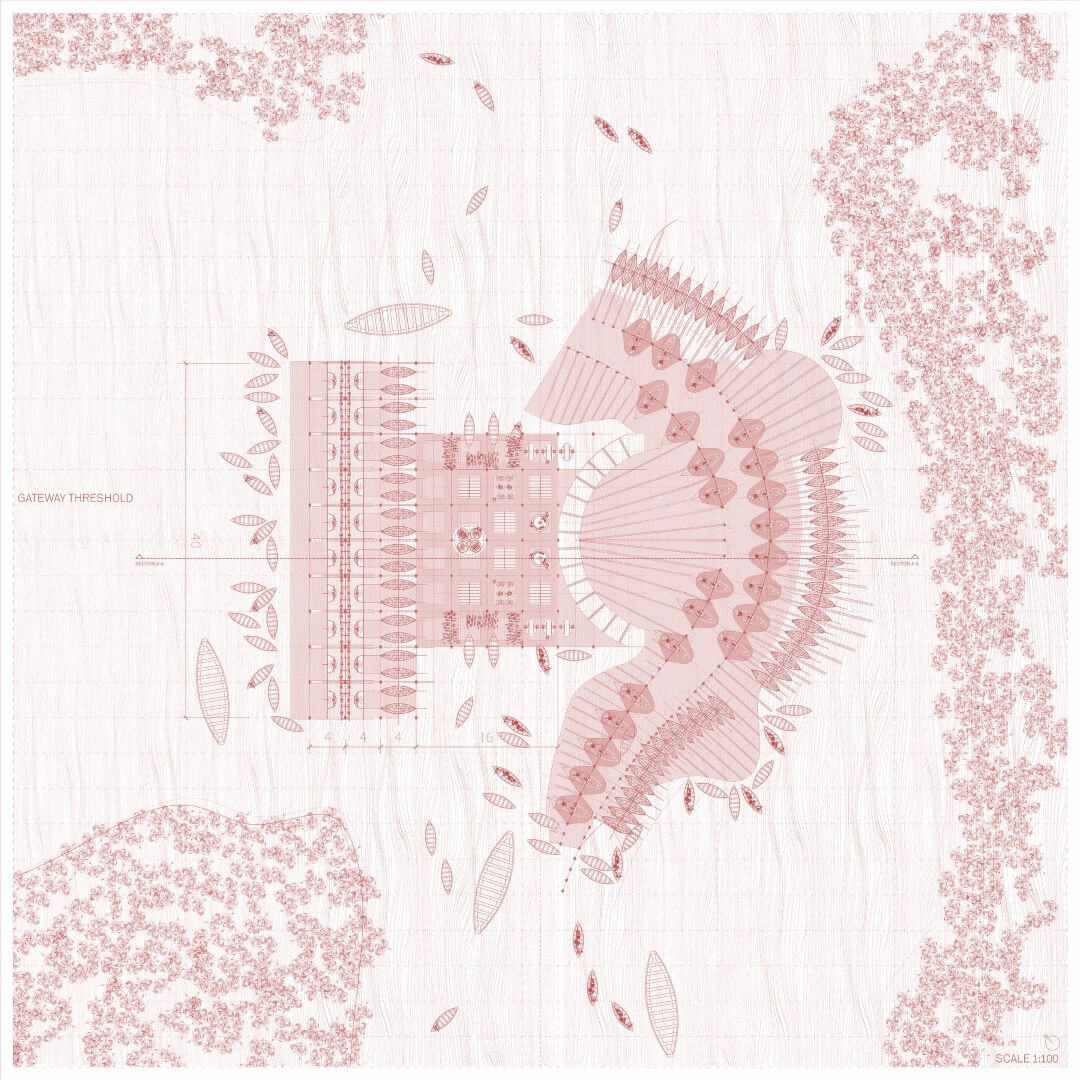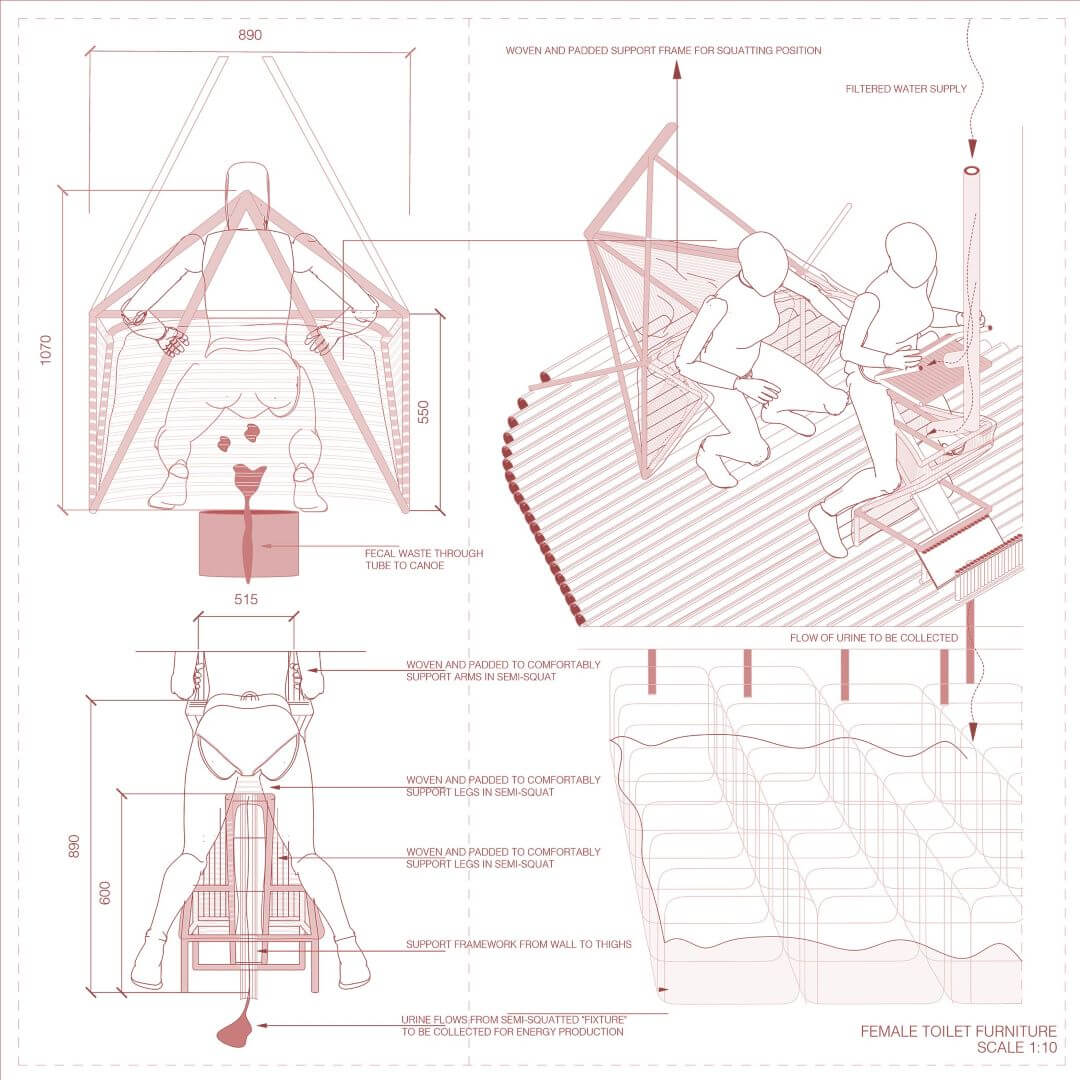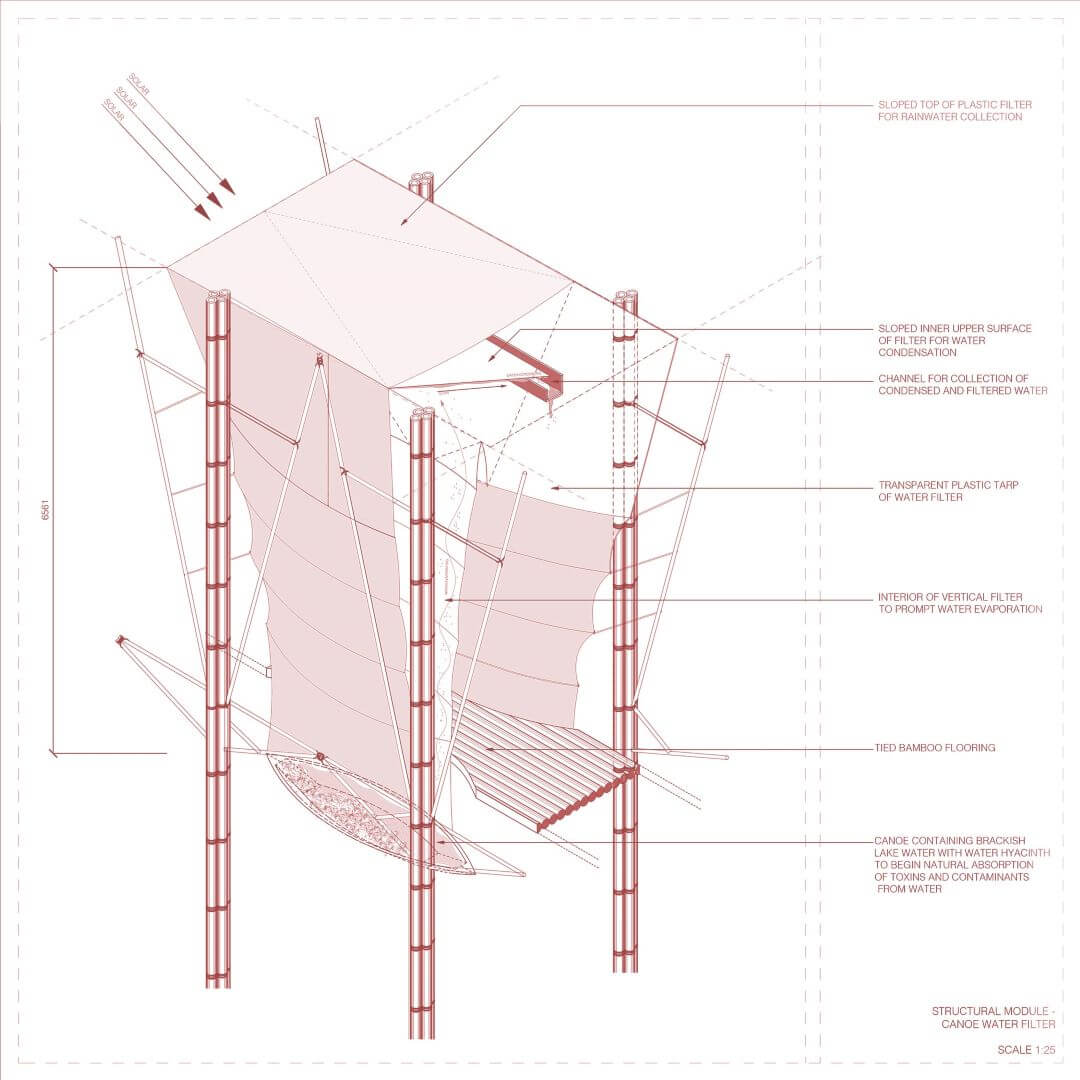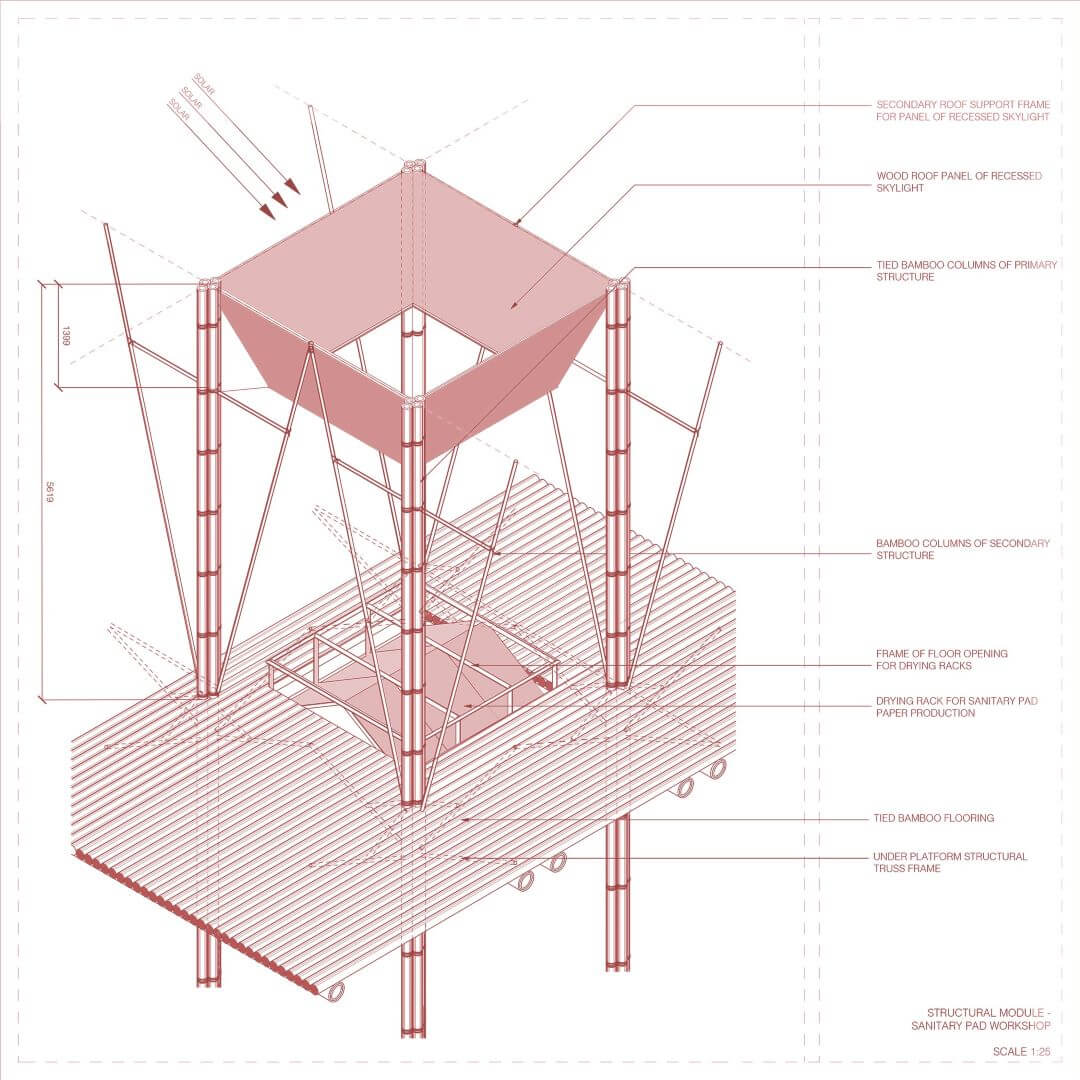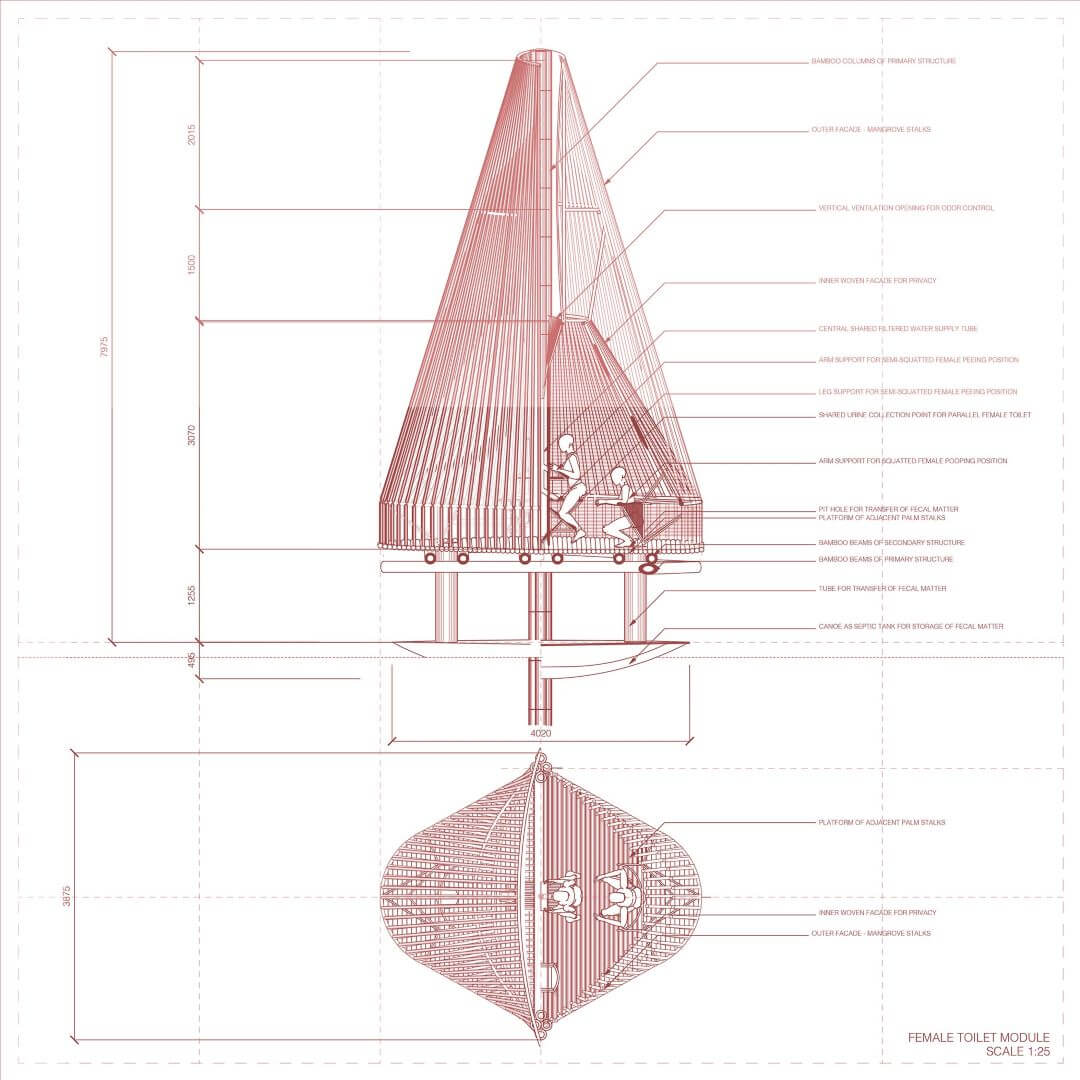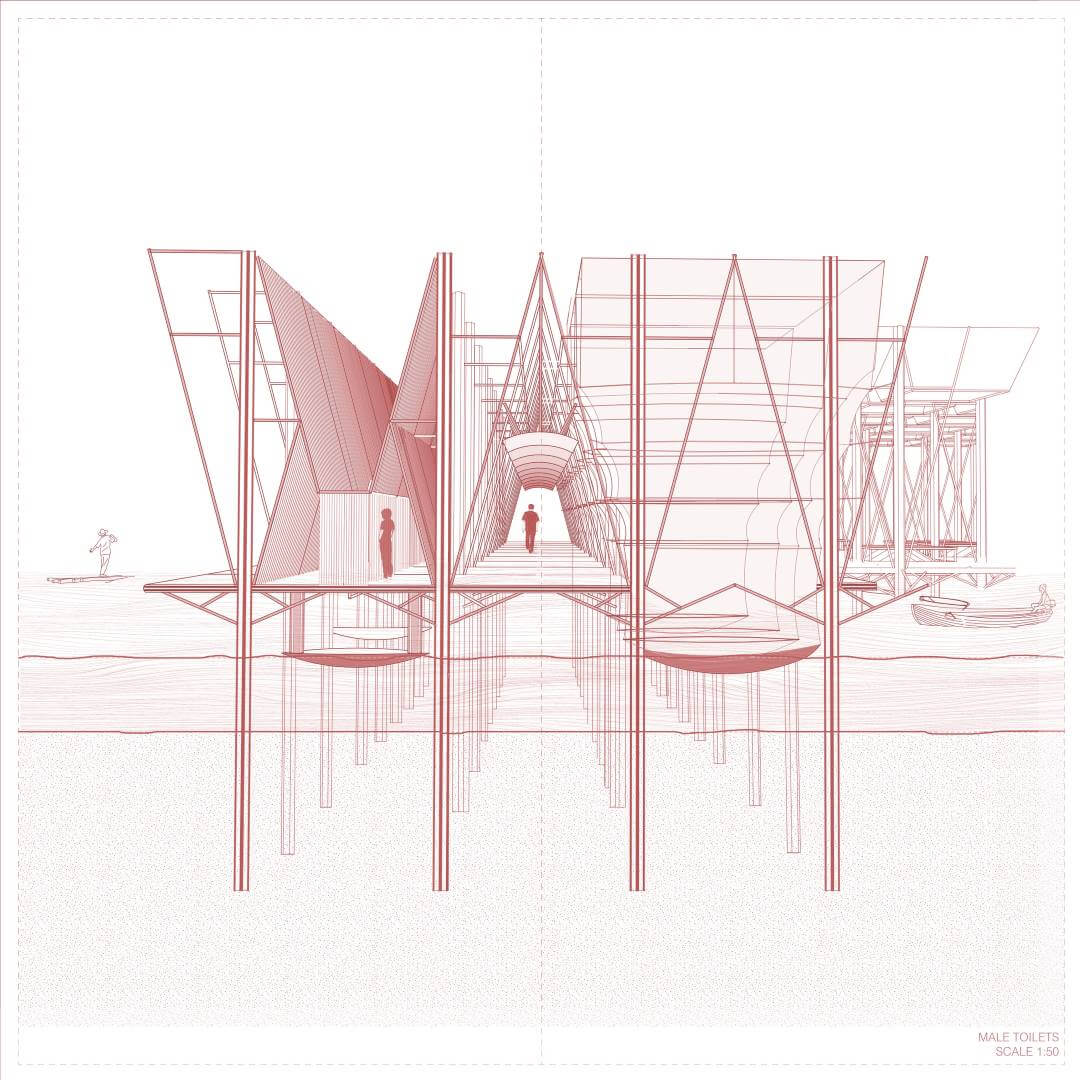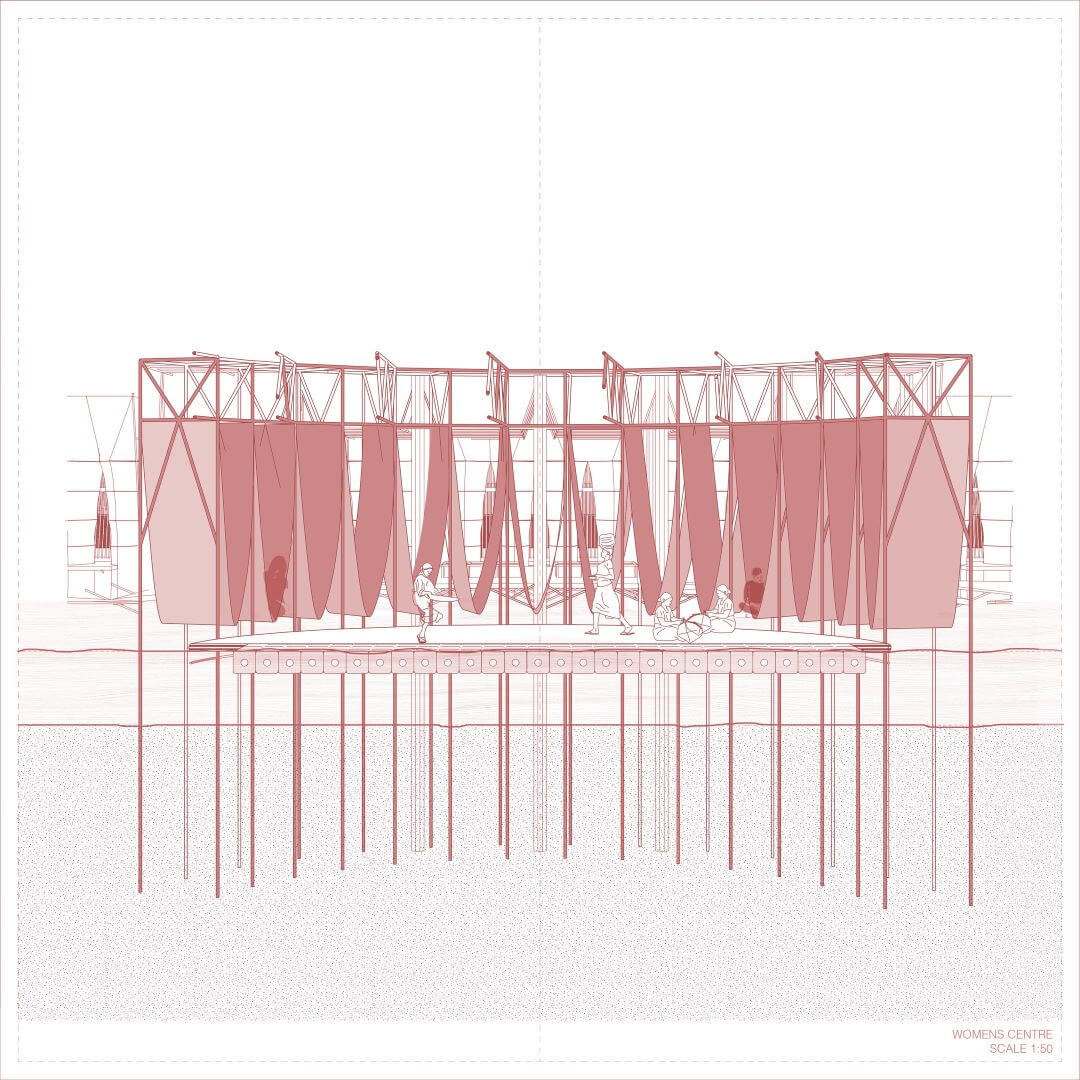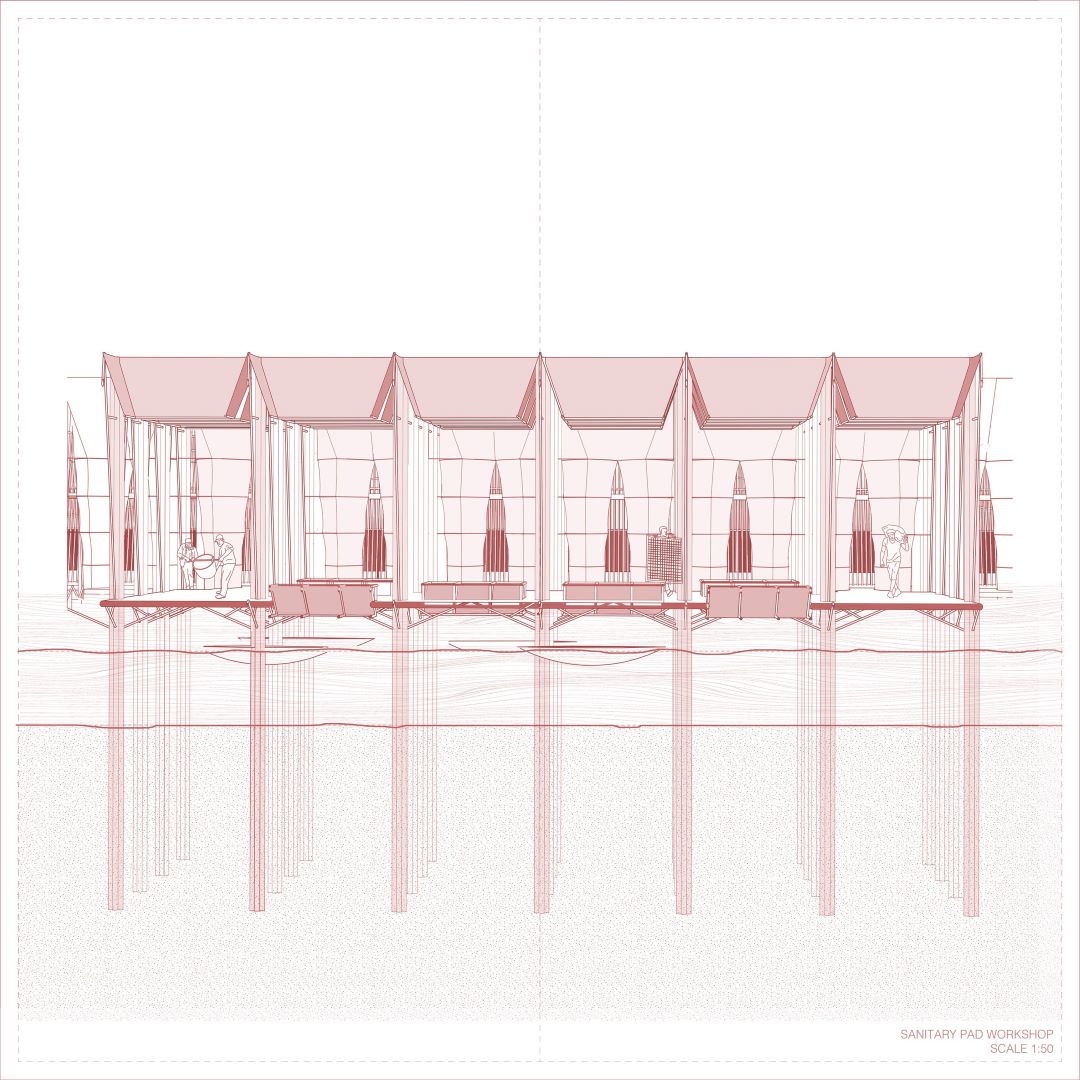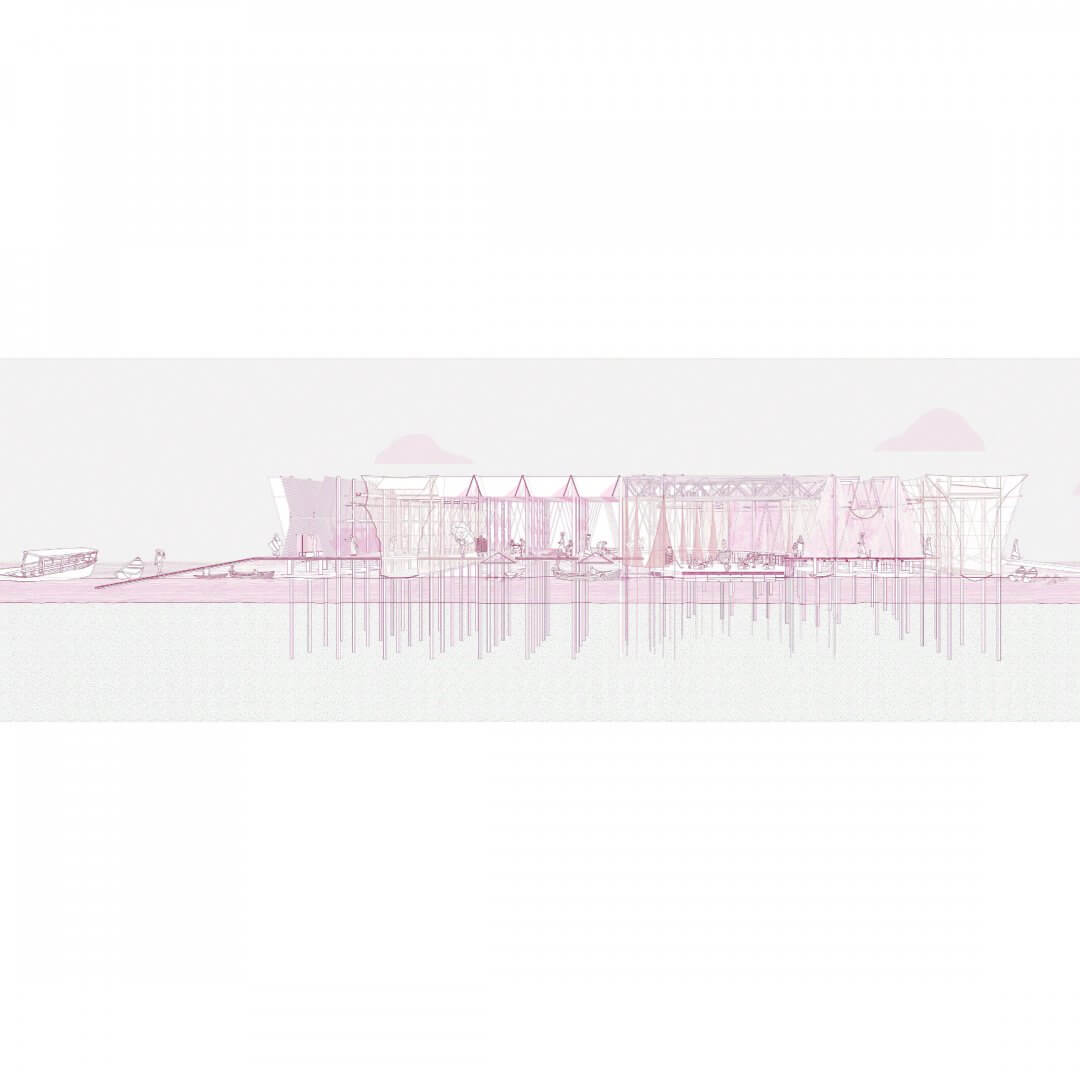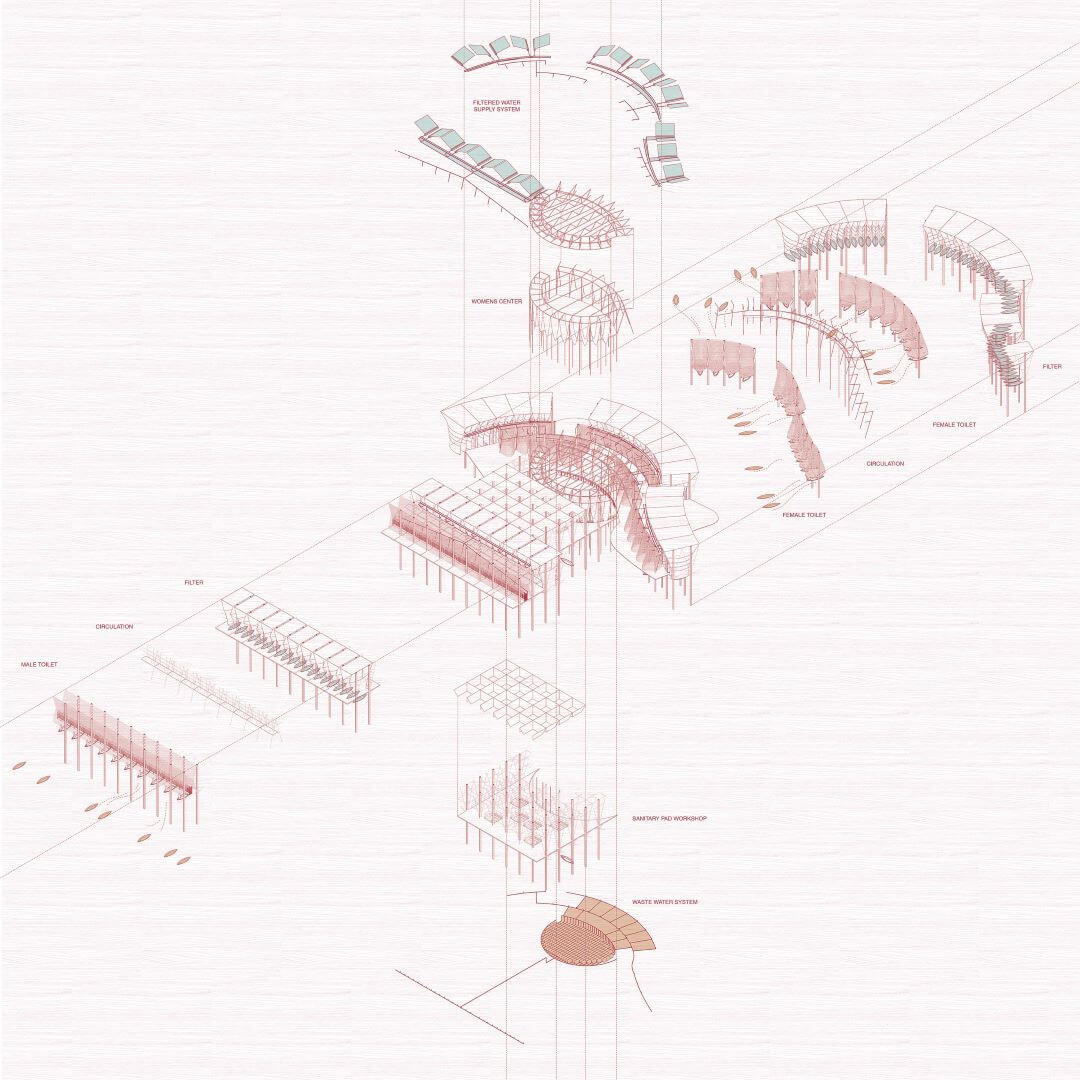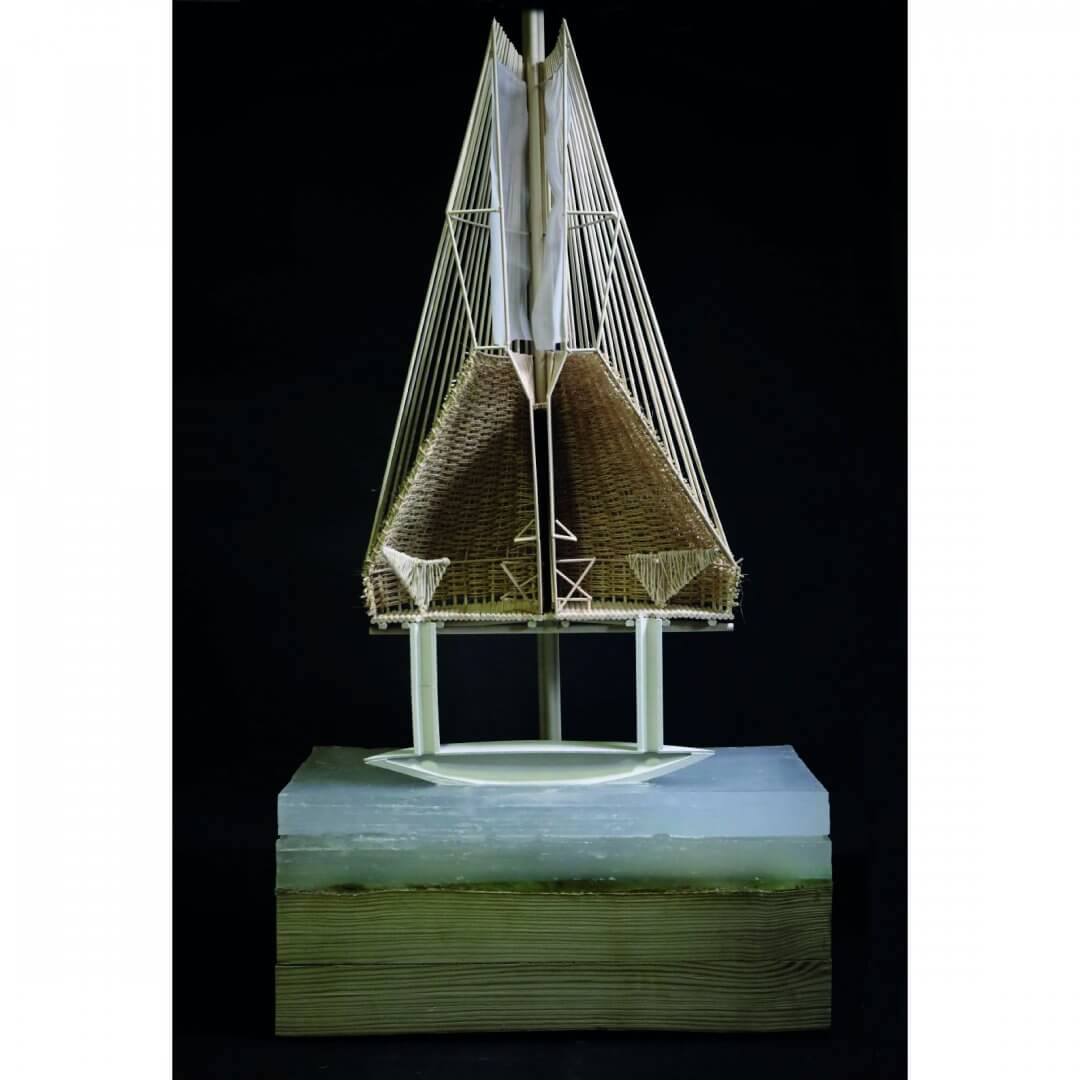Reem Nassour+Jia Ying Guan
The project explores the contentions between sanity, sanitation, and shame, through the lens of human waste and within a dialogue circumscribing the fragilities and fears of female menstruation.
Ganvié is a village of around 20,000 people that stands on stilts in the middle of Lake Nokoué in the country of Benin. It is a self-sustaining community that survives on highly developed fishing techniques. Unpurified sewage and waste from the urban settlement has led to the constant deterioration of the water quality, while poor hygienic conditions lead to diseases that challenge the livelihood of its citizens.
The project explores the contentions between sanity, sanitation, and shame, through the lens of human waste and within a dialogue circumscribing the fragilities and fears of female menstruation.
The project places male and female public toilets at the gateway of the city, utilizing water filters to provide clean sources of water, all of which are based on the proportions and functionalities of the canoe as an existing and reusable resource.
At the heart of the scheme, lies a workshop and women’s center that proposes the production and export of sanitary pads – produced from local water plants – that sheds lights on the strains of menstrual taboos on young girls and their education while offering opportunity to contribute to the ever-growing trade economy that the residents of Ganvié thrive on.
Authors: Reem Nassour+Jia Ying Guan.
Location: Ganvie, Benin.
University: Yale School of Architecture.
Year: 2022
